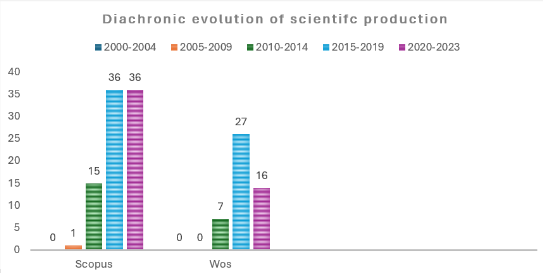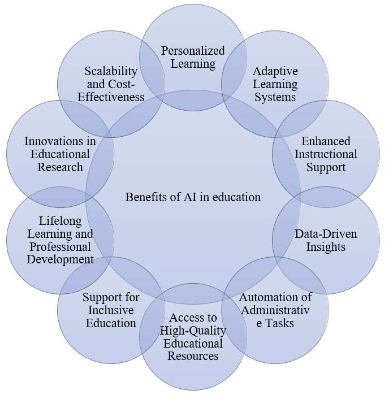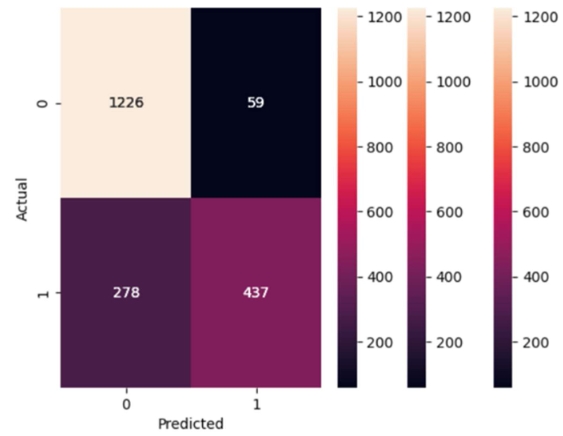Considering the mystery of professionalism: Further education in the UK
Abstract
The paper considers the concept of professionalism within the UK Further Education (FE) through an analysis of the literature. The paper identifies professionalism as a key feature of the changing landscape within UK FE since the Further and Higher Education Act (1992), which incorporated FE colleges, allowing them levels of autonomy and discretion not seen before. With it came new staffing contracts and changes to the expectations of a ‘professionalised’ staff team. This paper suggests that despite 30 years having passed since incorporation, FE Colleges and their management still struggle with the concept of professionalism and its reality, noting particularly the dysfunctional nature of the sector and its difficulty in having a defined identity.
References
[1]Robson J. A profession in crisis: status, culture and identity in the further education college. Journal of Vocational Education and Training. 1998; 50(4): 585-607. doi: 10.1080/13636829800200073
[2]Spenceley L. ‘Smoke and mirrors’: an examination of the concept of professionalism within the FE sector. Research in Post-Compulsory Education. 2006; 11(3): 289-302. doi: 10.1080/13596740600916534
[3]Whitty G. Teacher professionalism in new times. Journal of In-Service Education. 2000; 26(2): 281-295. doi: 10.1080/13674580000200121
[4]BIS. Professionalism in Further Education: Final Report. Department for Business, Innovation and Skills. Crown; 2012.
[5]OED. Professionalism. Available online: https://en.oxforddictionaries.com/definition/professionalism (accessed on 1 February 2024).
[6]Hoyle E. Changing Conceptions of Teaching as a Profession: Personal Ref lections. In: Johnson D, Maclean R (editors). Teaching: Professionalization, Development and Leadership. Springer; 2008. doi: 10.1007/978-1-4020-8186-6_19
[7]Randle K, Brady N. Managerialism and professionalism in the ‘cinderella service.’ Journal of Vocational Education & Training. 1997; 49(1): 121-139. doi: 10.1080/13636829700200007
[8]Armitage A. Teaching and Training in Post-Compulsory Education. OU Press; 1999.
[9]CIPD. The CIPD Profession Map. Available online: https://www.cipd.co.uk/learn/career/profession-map (accessed on 1 February 2024).
[10]Feather D. Professionalism: doing a good job! Research in Post-Compulsory Education. 2014; 19(1): 107-118. doi: 10.1080/13596748.2014.872940
[11]Tummons J. The textual representation of professionalism: problematising professional standards for teachers in the UK lifelong learning sector. Research in Post-Compulsory Education. 2014; 19(1): 33-44. doi: 10.1080/13596748.2014.872918
[12]Schuck S, Gordon S, Buchanan J. What are we missing here? Problematising wisdoms on teaching quality and professionalism in higher education. Teaching in Higher Education. 2008; 13(5): 537-547. doi: 10.1080/13562510802334772
[13]Farrugia C. A continuing professional development model for quality assurance in higher education. Quality Assurance in Education. 1996; 4(2): 28-34. doi: 10.1108/09684889610116030
[14]Feather D. Academic Identities: Voices from the Edge [PhD thesis]. University of Huddersfield; 2009.
[15]Plowright D, Barr G. An integrated professionalism in further education: a time for phronesis? Journal of Further and Higher Education. 2012; 36(1): 1-16. doi: 10.1080/0309877x.2011.590584
[16]Education shouldn’t be a political football. Available online: https://www.yorkpress.co.uk/news/11827152.education-shouldnt-be-political-football/ (accessed on 1 February 2024).
[17]Stoten DW. Professionalism, identity and the self: the de-moralisation of teachers in English sixth form colleges. Research in Post-Compulsory Education. 2013; 18(4): 365-376. doi: 10.1080/13596748.2013.847166
[18]Corbett S. Establishing professional expectations in further education middle management: The human resource manager’s perspective. Educational Management Administration & Leadership. 2020; 50(6): 911-927. doi: 10.1177/1741143220957328
[19]Simkins T, Lumby J. Cultural transformation in further education? mapping the debate. Research in Post-Compulsory Education. 2002; 7(1): 9-25. doi: 10.1080/13596740200200116
[20]Clow R. Further education teachers’ constructions of professionalism. Journal of Vocational Education & Training. 2001; 53(3): 407-420. doi: 10.1080/13636820100200166
[21]Illsley R, Waller R. “Further education, future prosperity? The Implications of Marketisation on Further Education Working Practices.” Research in Post-Compulsory Education. 2017; 22(4): 477-494. doi: 10.1080/13596748.2017.1381291
[22]Lucas N, Crowther N. The logic of the Incorporation of further education colleges in England 1993–2015: towards an understanding of marketisation, change and instability. Journal of Education Policy. 2016; 31(5): 583-597. doi: 10.1080/02680939.2015.1137635
[23]Gleeson D. Style and substance in education leadership: further education (FE) as a case in point. Journal of Education Policy. 2001; 16(3): 181-196. doi: 10.1080/02680930110041015
[24]Ball SJ. The teacher’s soul and the terrors of performativity. Journal of Education Policy. 2003; 18(2): 215-228. doi: 10.1080/0268093022000043065
[25]Avis J. Beyond performativity: reflections on activist professionalism and the labour process in further education. Journal of Education Policy. 2005; 20(2): 209-222. doi: 10.1080/0268093052000341403
[26]Atkins L, Tummons J. Professionalism in vocational education: international perspectives. Research in Post-Compulsory Education. 2017; 22(3): 355-369. doi: 10.1080/13596748.2017.1358517
[27]Tummons J. ‘Very positive’ or ‘vague and detached’? Unpacking ambiguities in further education teachers’ responses to professional standards in England. Research in Post-Compulsory Education. 2016; 21(4): 346-359. doi: 10.1080/13596748.2016.1226589
[28]Boocock A. Observation of teaching and learning: teacher development or micropolitics and neo-Fordism. Journal of Further and Higher Education. 2013; 37(4): 482-503. doi: 10.1080/0309877x.2011.645462
[29]O’Leary M. Expansive and restrictive approaches to professionalism in FE colleges: the observation of teaching and learning as a case in point. Research in Post-Compulsory Education. 2013; 18(4): 348-364. doi: 10.1080/13596748.2013.847164
[30]Stronach I, Corbin B, McNamara O, et al. Towards an uncertain politics of professionalism: teacher and nurse identities in flux. Journal of Education Policy. 2002; 17(1): 109-138. doi: 10.1080/02680930110100081
[31]Simons S. Put away childish things. Times Educational Supplement. 2019; 5343: 50-57.
[32]Eraut M. Developing Professional Knowledge and Competence. Routledge; 1994
[33]Bathmaker A, Avis J. Is that ‘tingling feeling’ enough? Constructions of teaching and learning in further education. Educational Review. 2005; 57(1): 3-20. doi: 10.1080/0013191042000274150
[34]Robson J, Bailey B. ‘Bowing from the heart’: An investigation into discourses of professionalism and the work of caring for students in further education. British Educational Research Journal. 2009; 35(1): 99-117. doi: 10.1080/01411920802041731
[35]Lucas N. One step forward, two steps back? The professionalisation of further education teachers in England. Research in Post-Compulsory Education. 2013; 18(4): 389-401. doi: 10.1080/13596748.2013.847221
[36]Nixon J. ‘Not Without Dust and Heat’: The Moral Bases of the ‘New’ Academic Professionalism. British Journal of Educational Studies. 2001; 49(2): 173-186. doi: 10.1111/1467-8527.00170
[37]Hillier Y, Appleby Y. Supporting professionalism: see-saw politics and the paradox of deregulation. Adults Learning. 2012, 24(2): 8-12.
[38]Bourdieu P. The Forms of Capital. In: Halsey AH (editor). Education: Culture, Economy and Society. OU Press; 1997. pp. 241-258.
[39]Grenfell M. Pierre Bourdieu. Routledge; 2014. doi: 10.4324/9781315729923
[40]Avis J, Kendal A, Parsons J. Crossing the boundaries: expectations and experience of newcomers to higher and further education. Research in Post-Compulsory Education. 2003; 8(2): 179-196. doi: 10.1080/13596740300200148
[41]Tully P. Joining the dots: theorising professionalism in the English Further Education Sector. Research in Post-Compulsory Education. 2022; 27(1): 66-97. doi: 10.1080/13596748.2021.2011510
[42]Tully P. ‘Below the surface’: power and professionalism in the further education sector. Research in Post-Compulsory Education. 2023; 28(1): 26-47. doi: 10.1080/13596748.2023.2166691
[43]Tully P. The importance of economic, social and cultural capital in understanding professionalism in English Further Education: a Bourdieusian approach. Research in Post-Compulsory Education. 2023; 28(3): 505-529. doi: 10.1080/13596748.2023.2221122
[44]Dennis CA. Locating post-16 professionalism: public spaces as dissenting spaces. Research in Post-Compulsory Education. 2015; 20(1): 64-77. doi: 10.1080/13596748.2015.993875
[45]Mourant A. FE colleges hit by more cuts. The Guardian. Available online: https://www.theguardian.com/education/2011/feb/28/funding-cuts-affect-colleges-extracurricular (accessed on 11 October 2020).
[46]Gray S, Whitty G. Social trajectories or disrupted identities? Changing and competing models of teacher professionalism under New Labour. Cambridge Journal of Education. 2010; 40(1): 5-23. doi: 10.1080/03057640903567005
[47]Gleeson D, Hughes J, O’Leary M, et al. The state of professional practice and policy in the English further education system: a view from below. Research in Post-Compulsory Education. 2015; 20(1): 78-95. doi: 10.1080/13596748.2015.993877
[48]Ecclestone K. The reflective practitioner: Mantra or a model for emancipation. Studies in the Education of Adults. 1996; 28(2): 146-161
[49]Nicholls G. Developing Teaching and Learning in Higher Education. Routledge; 2002. doi: 10.4324/9780203469231
[50]Playfair E. Reclaiming Professionalism in Further Education. FORUM. 2023; 65(2): 83-93. doi: 10.3898/forum.2023.65.2.08
Copyright (c) 2024 Alan Johnston, Lyn Johnston

This work is licensed under a Creative Commons Attribution 4.0 International License.









